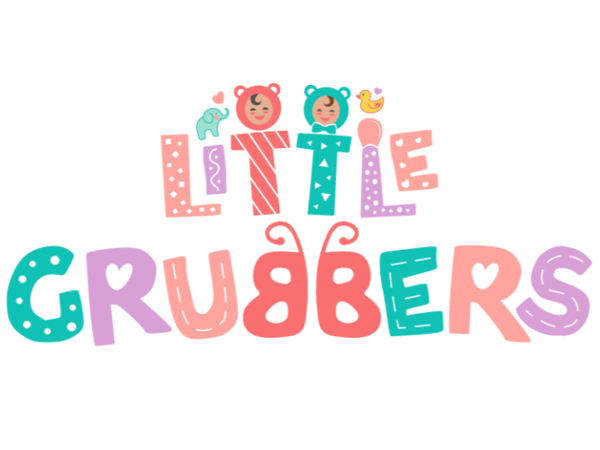Why Won’t My Baby Eat from a Spoon?
You excitedly prepare your baby’s first bites—maybe a smooth spoonful of mashed avocado or sweet potato. But instead of an enthusiastic response, your baby turns away, clamps their mouth shut, or swats the spoon away. What gives?
If your baby is refusing a spoon, don’t worry—you’re not alone! Many parents experience this mealtime struggle. The good news? There’s usually a simple reason behind it, and with a little patience (and some mess!), your baby will learn to enjoy spoon-feeding.
Let’s break down the top 5 reasons babies reject spoons and how you can encourage a smoother, happier feeding experience.
1. They’re Not Ready for Solids Yet
Not all babies are eager to dive into solids the moment they turn six months old. Some need a little more time to adjust to the idea of eating food instead of just drinking breast milk or formula.
Signs Your Baby Is Ready for a Spoon:
✔ Sits up with minimal support
✔ Shows interest in food (watching you eat, reaching for your food)
✔ Opens their mouth when food is offered
✔ No longer pushes food out with their tongue (tongue-thrust reflex is gone)
💡 What to Do: If your baby isn’t showing these signs, wait a week or two and try again. Every baby is different, and some may need more time before they’re ready for solids.
2. They Prefer to Self-Feed
If your baby grabs the spoon or refuses to be spoon-fed, they might want to take control of mealtime. This is a common behavior, especially around 6-8 months, when babies start exploring independence.
How to Encourage Self-Feeding:
- Offer pre-loaded spoons (dip the spoon in food and let them grab it).
- Try soft finger foods like avocado slices, banana chunks, or scrambled eggs.
- Use a baby-friendly utensil, like the [Little Grubbers 3-in-1 Baby Spoon](Insert Link), which is designed for tiny hands learning to self-feed.
💡 What to Do: Let your baby practice with a spoon while you alternate between self-feeding and helping with bites. This builds confidence while ensuring they still get enough food.
3. They’re Distracted or Not Hungry
If your baby is too busy looking around, playing, or pushing food away, they might simply not be hungry enough for solids at that moment.
Common Feeding Distractions:
🚼 New surroundings or too much noise
🚼 A favorite toy nearby
🚼 TV or screens in the background
🚼 Feeding too soon after breastmilk/formula
💡 What to Do: Try offering solids when your baby is calm and slightly hungry, but not starving. A quiet, distraction-free space can help them focus on eating.
4. They Don’t Like the Texture or Taste
Babies are new to textures—and some may need extra time to adjust. If your baby is rejecting a certain food, it could be because the texture feels too thick, too thin, or too new.
How to Help Your Baby Adjust to New Textures:
✔ Start with familiar flavors – Mix new foods with breast milk or formula.
✔ Experiment with textures – Try smooth purees, soft mashes, or thicker consistency.
✔ Offer the same food multiple times – It may take 10-15 tries before they accept it!
💡 What to Do: If your baby refuses one food, don’t stress! Keep offering a variety of flavors and textures in small amounts.
5. Teething or Feeling Uncomfortable
A teething baby may refuse the spoon because their gums feel sore. If your baby is drooling, gnawing on everything, or fussy, teething could be the reason they’re avoiding food.
What to Try if Teething Is the Issue:
- Offer cool purees (like chilled applesauce or yogurt) to soothe sore gums.
- Let them chew on a cold baby spoon before mealtime.
- Be patient—teething discomfort won’t last forever!
💡 What to Do: Try again later! Skipping a meal here and there won’t harm your baby—they’ll eat when they feel better.
How to Make Spoon-Feeding Easier
If your baby refuses the spoon, don’t force it. Instead, make mealtime positive and stress-free with these tips:
✔ Let them explore – Allow your baby to touch and play with their food.
✔ Offer a baby-friendly spoon – The [Little Grubbers 3-in-1 Baby Spoon](Insert Link) is designed for easy grip and self-feeding.
✔ Use fun mealtime words – A playful “Here comes the airplane!” can make feeding more engaging.
✔ Be patient – Sometimes, babies need time to warm up to new experiences.
Final Thoughts: Every Baby Eats at Their Own Pace
If your baby is rejecting the spoon, you’re not alone! It’s a normal part of the feeding journey. Whether they need more time, prefer self-feeding, or are just distracted, gentle encouragement and patience will help them adjust.
💛 Ready to make mealtime easier? Check out the [Little Grubbers 3-in-1 Baby Spoon]—designed for self-feeding success! 💛
What has helped your baby accept the spoon? Share your tips in the comments! 😊

